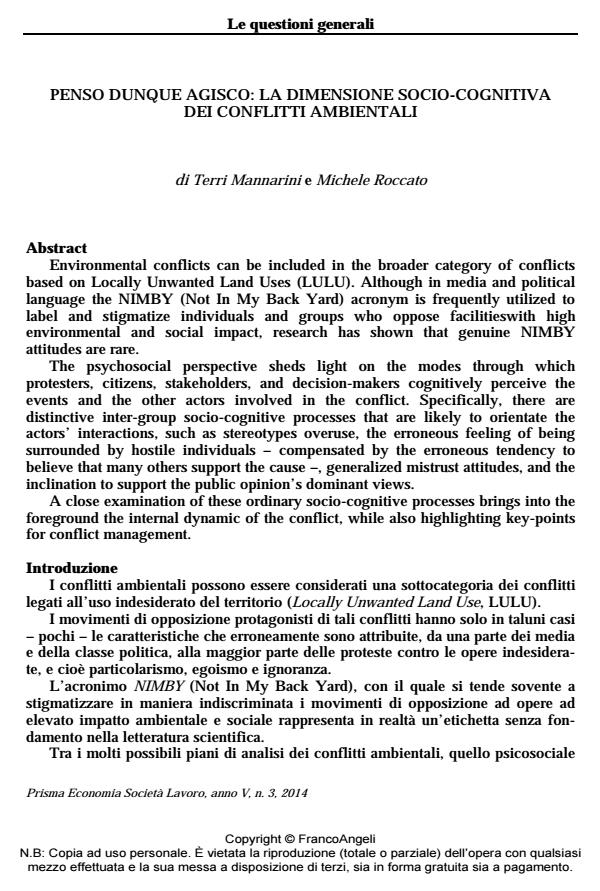Penso dunque agisco: la dimensione socio-cognitiva dei conflitti ambientali
Titolo Rivista PRISMA Economia - Società - Lavoro
Autori/Curatori Terri Mannarini, Michele Roccato
Anno di pubblicazione 2015 Fascicolo 2014/3
Lingua Italiano Numero pagine 15 P. 16-30 Dimensione file 69 KB
DOI 10.3280/PRI2014-003003
Il DOI è il codice a barre della proprietà intellettuale: per saperne di più
clicca qui
Qui sotto puoi vedere in anteprima la prima pagina di questo articolo.
Se questo articolo ti interessa, lo puoi acquistare (e scaricare in formato pdf) seguendo le facili indicazioni per acquistare il download credit. Acquista Download Credits per scaricare questo Articolo in formato PDF

FrancoAngeli è membro della Publishers International Linking Association, Inc (PILA), associazione indipendente e non profit per facilitare (attraverso i servizi tecnologici implementati da CrossRef.org) l’accesso degli studiosi ai contenuti digitali nelle pubblicazioni professionali e scientifiche.
Environmental conflicts can be included in the broader category of conflicts based on Locally Unwanted Land Uses (LULU). Although in media and political language the NIMBY (Not In My Back Yard) acronym is frequently utilized to label and stigmatize individuals and groups who oppose facilitieswith high environmental and social impact, research has shown that genuine NIMBY attitudes are rare. The psychosocial perspective sheds light on the modes through which protesters, citizens, stakeholders, and decision-makers cognitively perceive the events and the other actors involved in the conflict. Specifically, there are distinctive inter-group socio-cognitive processes that are likely to orientate the actors’ interactions, such as stereotypes overuse, the erroneous feeling of being surrounded by hostile individuals compensated by the erroneous tendency to believe that many others support the cause , generalized mistrust attitudes, and the inclination to support the public opinion’s dominant views. A close examination of these ordinary socio-cognitive processes brings into the foreground the internal dynamic of the conflict, while also highlighting key-points for conflict management.
Terri Mannarini, Michele Roccato, Penso dunque agisco: la dimensione socio-cognitiva dei conflitti ambientali in "PRISMA Economia - Società - Lavoro" 3/2014, pp 16-30, DOI: 10.3280/PRI2014-003003